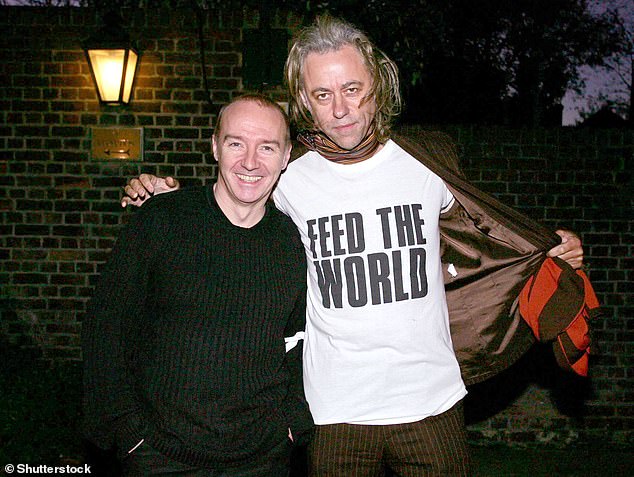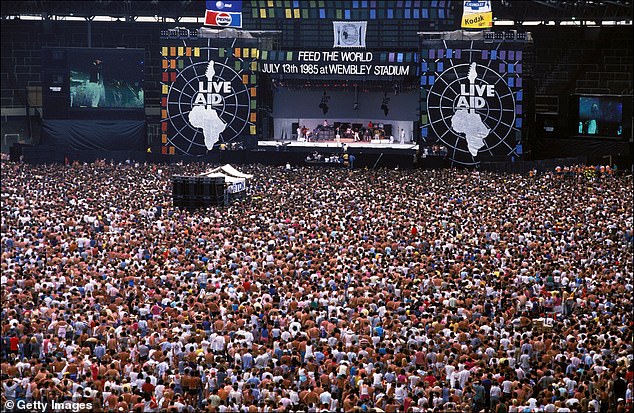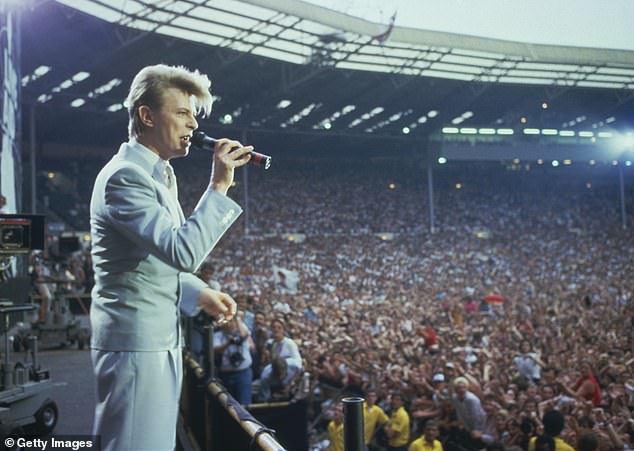Midge Ure yesterday said Live Aid could never be repeated today because everyone is too ‘busy looking at screens’.
The former Ultravox frontman – who organised the mega-concert with Bob Geldof – says that while technological advances should make putting on such a large event easier, they have also brought with them too many distractions.
Live Aid saw rock royalty take to the stage simultaneously at Wembley Stadium and Philadelphia 40 years ago today and was watched by more than two billion people worldwide – raising an astonishing £150 million for African famine relief.
Ure, 71, told the Today programme on BBC Radio 4: ‘Everyone’s all over the place. Everyone’s too busy looking at screens.
‘Technically, you could organise it easier, but these days you have so many distractions.
‘Forty years ago, music was the be all and end all. You didn’t have smartphones. You didn’t have the internet. You didn’t have 24-hour anything at all.
‘There were no distractions. You had no video games. You had none of that stuff. So, you could focus.’
He added: ‘I can’t quite believe I’m still here and the fact that we’re still talking about Band Aid and Live Aid at 40 years old, it’s quite magnificent.

Midge Ure pictured with Bob Geldof in November 2004. They both organised mega concert Live Aid in 1985

Live Aid saw rock royalty take to the stage simultaneously at Wembley Stadium and Philadelphia 40 years ago today

David Bowie performing at the Live Aid concert at Wembley Stadium in London, 13th July 1985
‘It’s a life beyond the life we ever thought it would have.’
Ure said that the concert was organised over three months using telephone and telex to book artists with Geldof telling white lies about who was signed up.
He said: ‘I think the reality is that Bob lied, quite blatantly, when he announced Live Aid.
‘He said that various people were doing it when they hadn’t actually agreed. It was a little bit of Bob manipulation really.’
He brushed off criticism which has seen Live Aid accused of ‘white saviourhood’, arguing that watching millions die of starvation in Africa would have been worse.
Recalling when he fronted a radio programme for the BBC about a children’s circus in South Africa, he said: ‘I was speaking to the person that ran the circus who was trying to integrate all the kids there, all the different ethnicities.
‘And I said, “Well, how does that help?” And he said, “Well, if you’re 30ft off the ground on a trapeze, and somebody reaches a hand out to grab you, you don’t care what colour that hand is”. And that’s exactly what we did.’












